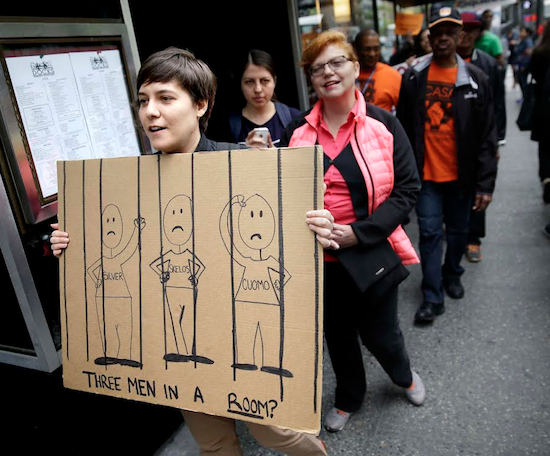Corruption cases target NYC real estate money, state leaders

Albany’s latest corruption cases focus on New York City real estate interests seeking tax breaks from politicians, in particular an exemption worth about $1 billion a year that legislators and the governor must now decide whether to extend.
Federal prosecutors allege the Senate and Assembly leaders got hefty campaign contributions or other payments for themselves and others in return for laws benefiting the city’s wealthiest landlords.
Many real estate professionals defend political contributions in Albany and note that high-profile issues are at stake in the Legislature, including rent control and a package of incentives for new housing construction — the so-called 421A tax abatements. The incentives were created decades ago to encourage development in New York City. Without the tax breaks, they say, rents would be higher and many tenants would have fewer options.
